No negotiation, what does North Korea want?
(Baonghean.vn) - While the world is focused on Russia's military campaign in Ukraine, today (February 27) North Korea conducted its 8th missile test this year after nearly a month of interruption. Previously, North Korea's consecutive missile tests were often thought to be aimed at attracting the attention of the international community, creating leverage for negotiations with the US and South Korea. But that explanation no longer seems to be consistent with North Korea's purpose in 2022, when the opportunity for the parties involved to move towards negotiations in the near future is almost non-existent.
Lack of motivation to negotiate
After a month of "silence", on February 27, North Korea conducted another test.ballistic missilesback from a location near Sunan - where Pyongyang's international airport is located. This is also the location where North Korea launched a pair of short-range ballistic missiles on January 16. In terms of timing, some believe that the serious crisis in Ukraine could create favorable conditions for North Korea to promote missile tests while still "avoiding" international sanctions, because the US will be distracted and not consider leading international responses against North Korea as the focus. However, according to analysts, the developments in Ukraine do not have much impact on North Korea's schedule, because if you look back at January, North Korea conducted 7 missile tests, more than the entire year of 2021 combined. The country's month-long pause in testing coincides with China hosting the Beijing Winter Olympics, and could be a way for North Korea to show respect to China, which is still seen as its only major ally.
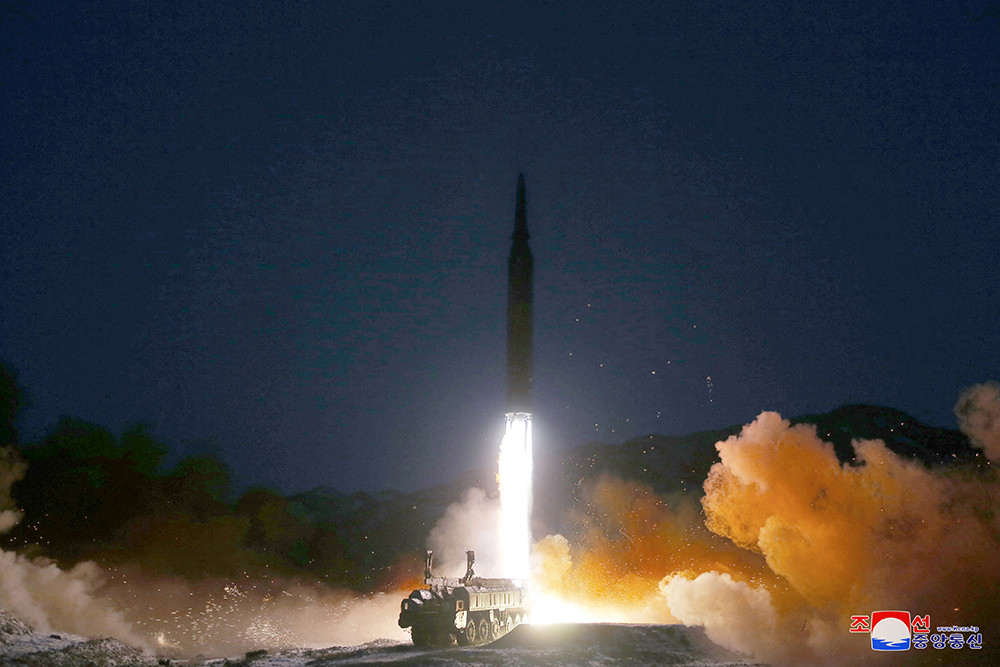 |
| North Korea tested missiles again after nearly a month of hiatus. Photo: Reuters |
US Secretary of State Antony Blinken once said that North Korea was trying to attract attention with its missile tests, but that assessment seems to be oversimplified when looking at the current context, when the prospect of negotiations between North Korea and the US or South Korea is not highly appreciated. The most basic assessment is that the US, South Korea, and even Japan at this time lack the motivation to negotiate with North Korea, so attracting attention as a negotiating leverage at this time is not of much value to North Korea. On the South Korean side, President Moon Jae-in has followed a moderate trend towards North Korea since the beginning of his term five years ago, and his basic stance is generally not affected by inter-Korean tensions or missile tests. Neighboring Japan has also long formed a way to respond to North Korea's missile threat by building a missile defense system and improving its attack capabilities against North Korean bases.
The most important factor in negotiationsnuclear negotiationsNorth Korea is America. However, since President Joe Biden took office, the North Korean issue has not been ranked among the top foreign policy concerns of the Joe Biden administration. The US president tends to regard North Korea's missile tests as "business as usual".
The US response to North Korea's missile tests is seen as a formality.
With so many major domestic issues to deal with, plus foreign policy issues to deal with involving Russia and China, peace on the Korean Peninsula is not yet at the center of Biden’s agenda. A survey released by the Pew Research Center in mid-February, which compiled the top 18 policy concerns of Americans, barely mentioned foreign affairs and did not mention North Korea. Moreover, Biden surely realizes that serious diplomatic moves with North Korea at this time will face opposition from his political opponents. Therefore, the US response to North Korea’s missile tests is considered to be a formality, which is to condemn the tests and reiterate the message that the US is ready to negotiate at any time, as long as North Korea agrees to discuss denuclearization. And of course, a real negotiation is still very far away.
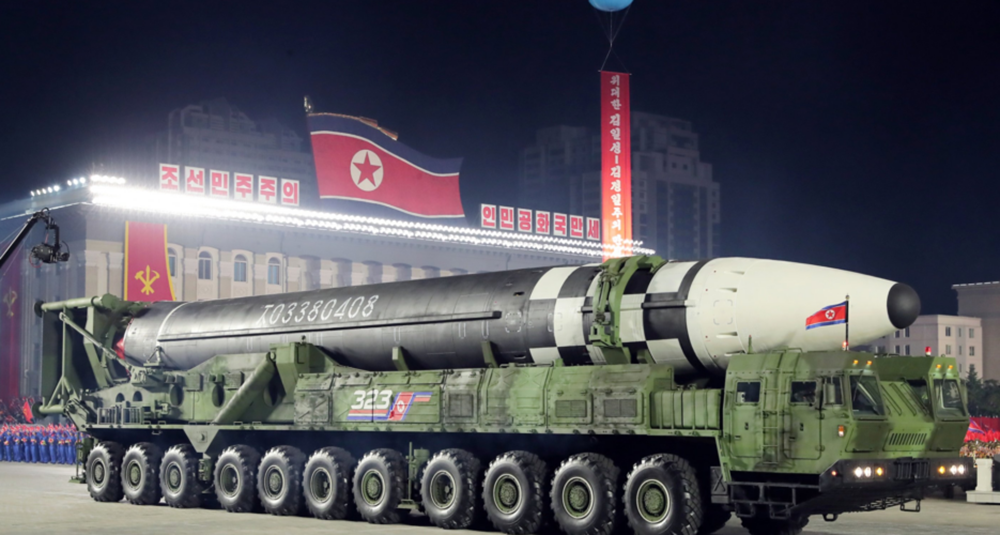 |
| North Korea's Hwasong-12 missile has a range that covers Japan and Guam, USA. Photo: NK News |
Positioning as a “nuclear-weapon state”
With no intention of attracting attention as a negotiating lever, many people have questioned North Korea's consecutive missile tests in January 2022 and just resumed over the weekend, in which the most consensus view is that North Korea is testing its technical capabilities, aiming to be recognized as a "peaceful nuclear weapons state".
A year ago,North Korean leader Kim Jong-unKim Jong-un has vowed to upgrade the country's strategic arsenal, adding "new nuclear capabilities." He specifically mentioned submarine-launched ballistic missiles, hypersonic missiles, improving the accuracy of missiles, switching from liquid to solid fuel to significantly reduce launch preparation time. Kim Jong-un also mentioned tactical nuclear weapons and building nuclear warheads, the largest conventional warheads for missiles developed by North Korea. Recent tests have included short- and medium-range ballistic missiles and cruise missiles, which are believed to be part of the roadmap to upgrade the arsenal that Kim Jong-un has announced.
Once North Korea is recognized as a nuclear-weapons state, the international community and the United States will no longer have a reason to maintain sanctions against the country.
During a period when US-North Korea relations were considered quite warm, with two summits and a meeting between Donald Trump and Kim Jong-un at the inter-Korean border, North Korea pledged to stop testing long-range ballistic missiles in 2017. At that time, this pause could have been to create momentum for US-North Korea negotiations, but it could also have been because North Korean technicians did not really believe in the possibility of success. A failed test would raise doubts in the international community about North Korea's ability to develop nuclear weapons.
But now, things have changed. North Korea no longer has the leverage to negotiate, but the need to lift sanctions and be recognized as a “peaceful nuclear weapons state” is still there. And to be recognized, North Korea will have to prove that nothing can stop its progress, and once recognized as a nuclear weapons state, the international community and the United States will no longer have a reason to maintain sanctions against this country.
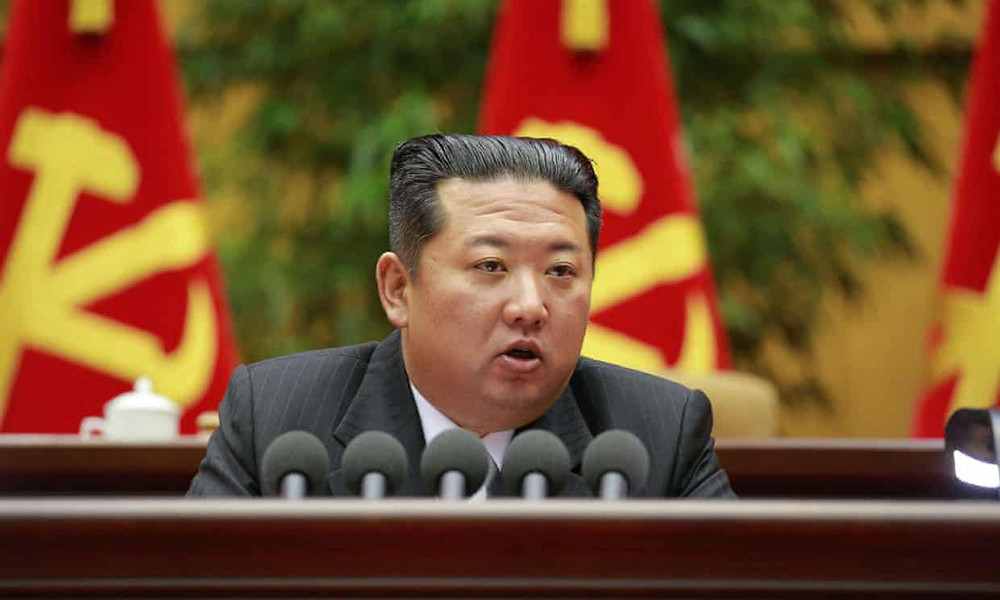 |
| North Korean leader Kim Jong-un once announced the upgrading of the national strategic arsenal. Photo: KCNA |
With the Beijing Olympics over, many experts predict that North Korea will continue to conduct more missile tests to improve its weapons technology. The last missile test North Korea conducted in January was a launch of the Hwasong-12 intermediate-range ballistic missile (IRBM), the most powerful missile North Korea has tested since 2017. The Hwasong-12 has a range of 5,000 km - putting all of Japan and the US territory of Guam within range. Both Japan and Guam are home to important US military bases that would be used in any crisis on the Korean Peninsula.
With the resumption of missile tests, North Korea may soon upgrade to an intercontinental ballistic missile (ICBM), or even a nuclear missile in the near future. But whether it is the Beijing Olympics or the Ukraine crisis, North Korea tends to act according to its own timetable, and one of the most important upcoming holidays for North Korea is the 110th birthday of leader Kim Il Sung on April 15. This is considered an important time for North Korea to demonstrate powerful new weapons. Therefore, between now and then, North Korea is expected to conduct more missile tests, the important thing is to know which limit this country will reach - intercontinental ballistic missile or nuclear missile.

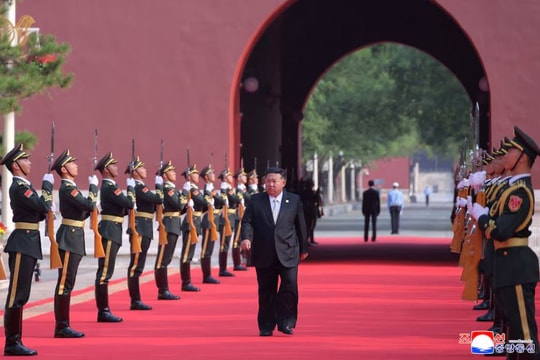
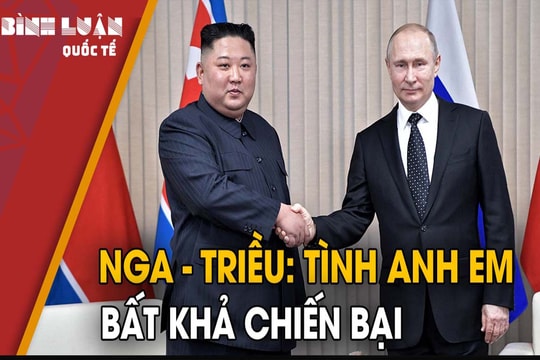

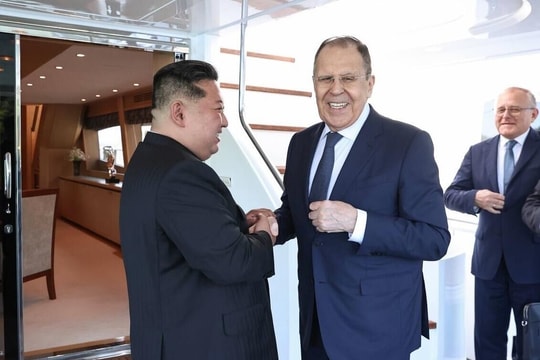
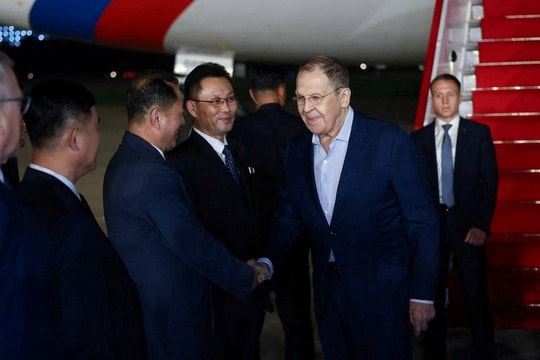
.jpg)

